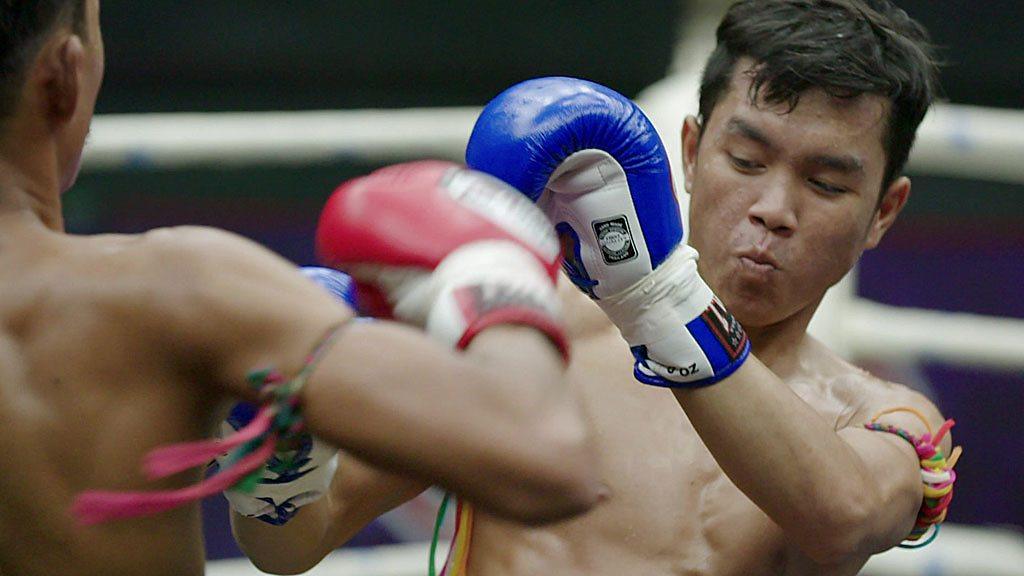100 Women: The Muay Thai fighters excluded from the ring for being female
- Published
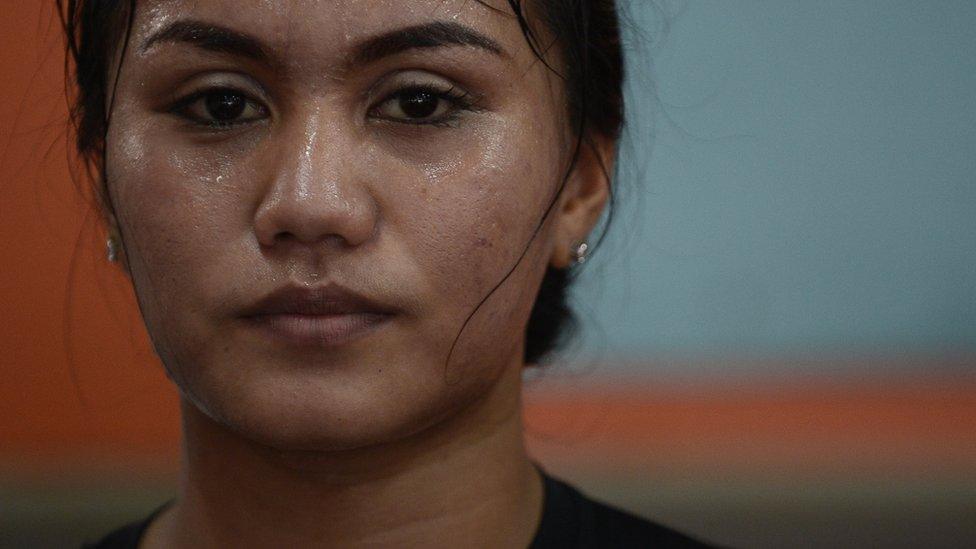
Ratchadaphon Winhantamma is a professional Muay Thai fighter
Traditionally, female Thai boxers must enter the ring by crawling under the lowest rope, whilst men stride over the top rope.
Thai boxing, also known as Muay Thai, is Thailand's national sport and it's not for the faint of heart. It involves eight points of body contact and has practices linked to superstition and belief in magic.
Beliefs dictate that the head is the highest and most sacred part of the body. Magic blesses the auspicious headband or mongkol that fighters are given.
In contrast, menstruation is seen as detrimental to that protective magic, so women - even when they aren't on their period - can't pass over that top rope because they might negate the blessings. However, not all women follow this rule.
This belief is taken a step further in two of Thailand's most famous and prestigious boxing stadiums, Rajadamnern and Lumpinee, where there are no female fights.
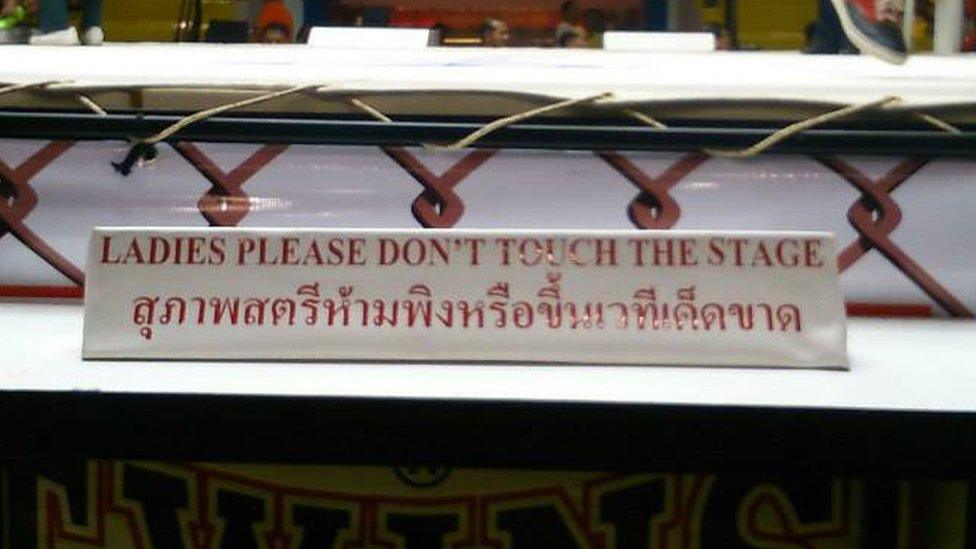
Signage at the new Lumpinee stadium in north Bangkok
Despite these obstacles, 21-year-old Ratchadaphon Winhantamma, a mother and a professional Muay Thai boxer, says she will, "continue to fight until her body says no".
Ratchadaphon is known professionally as "Sawsing Sor Sopit" in Thailand and won gold at Turkmenistan's fifth Asian Indoor and Martial Arts Games.
She says she is determined to push herself further and inspire the next generation of female fighters in Thailand.
"Getting married and having a child didn't stop my desire to be a female Muay Thai fighter," she says.
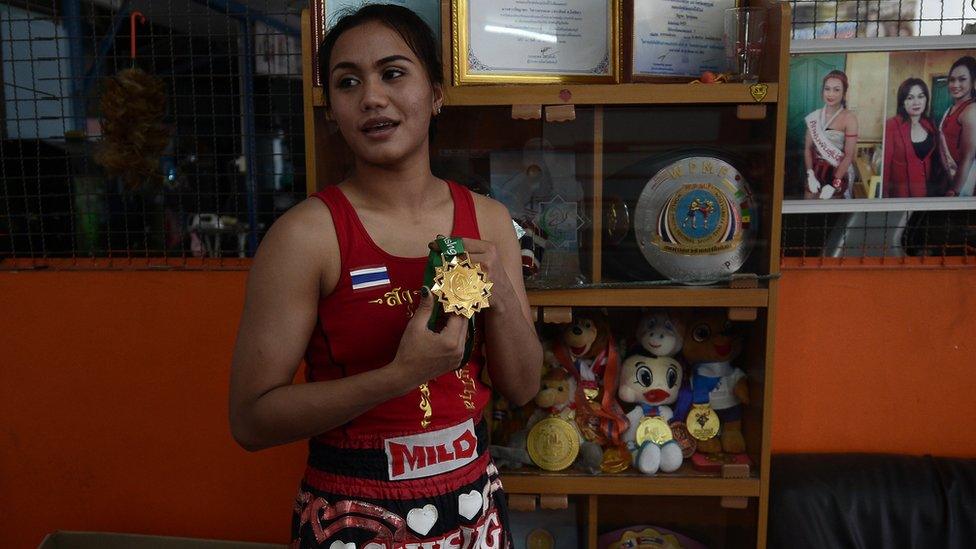
Early last year Sawsing made the sacrifice of leaving her family for three months to train.
"It was very hard time for a mother like me to leave my five-month-old son and practice for competitions when my body had not fully recovered from the delivery," she says.
She admits she had been under a lot of pressure from her trainer, who questioned why she decided to return to the ring when she had a child and husband to look after.
"My thinking is different," Sawsing says.
"As a mother, I hope to raise my child to the best of my ability. As a female fighter, I hope to raise the bar for other woman, something people don't believe I'm supposed to do."
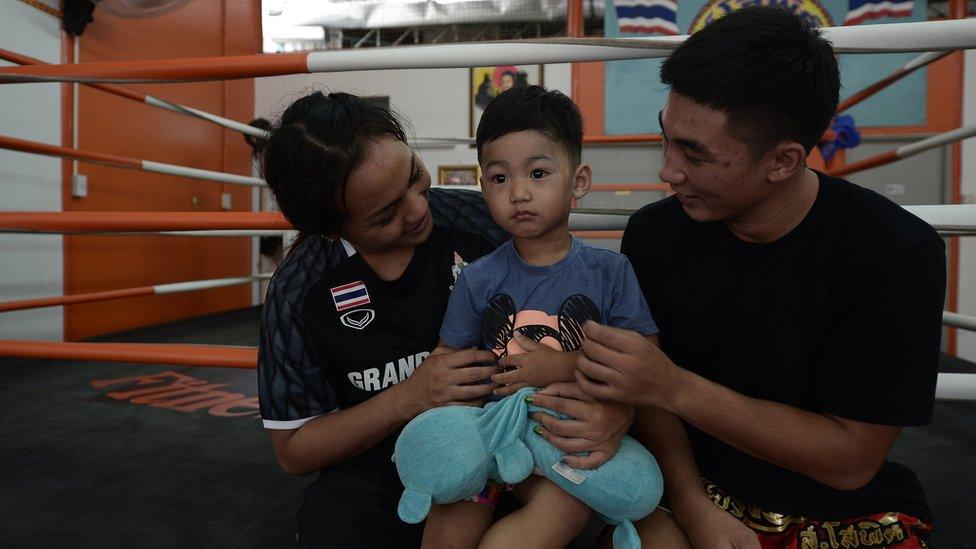
Ratchadaphon Winhantamma's husband Kanchit Chaiyaphon is also a Muay Thai fighter
Sawsing's story is unique. The reality for many female fighters in Thailand is a career in the ring cut short, from family commitments or a lack of sponsorship.
Not being able to compete for the top titles at Lumpinee and Rajadamnern is a big drawback.
Consequently, female athletes still face difficulties being accepted by commercial sponsors to support their fighting.
"Like other sports, male athletes get better paid than women and there are more opportunities. Boxing is no exception," says Pariyakorn Ratanasuban, a Thai promoter for female boxers at Onesongchai Boxing Promotion.
Pariyakorn is the daughter of the country's leading Muay Thai promoter, Songchai Ratanasuban, and has 30 years of experience in boxing promotion.
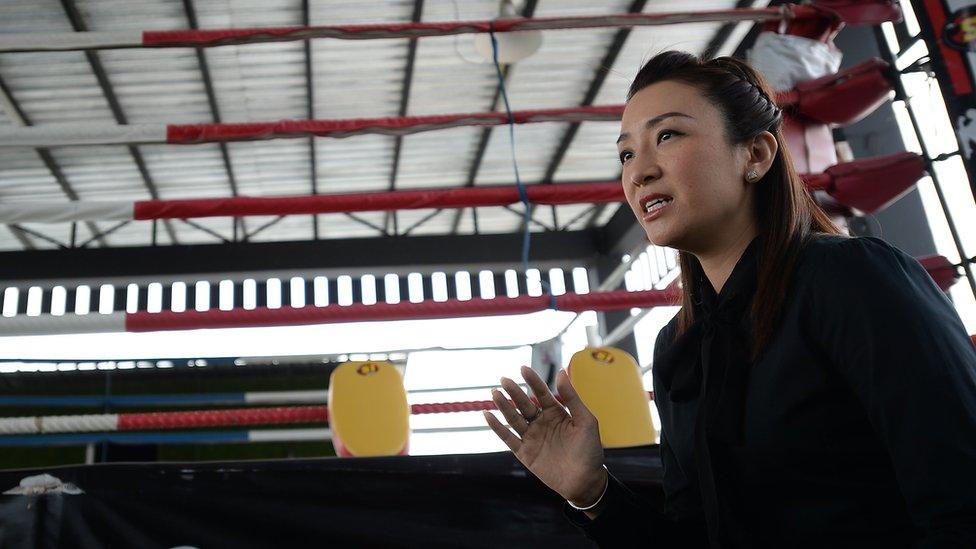
Pariyakorn Ratanasuban is one of Thailand's only female Muay Thai promoters
"Sponsors still play a key role in the boxing industry and opportunities for individual boxers is dependent on sponsors, including how much they earn," she says.
Most sponsors still believe that boxing is a man's sport, she says, and focus their investment accordingly.
Some promoters just don't want to see women fight.
Chamagorn Chairin, professionally known as Yodying, trains an all-female fight team in Bangkok
Sawsing agrees and says a successful female Muay Thai boxer could make 40,000 baht (£900) for each fight, but a male boxer's earnings start at 70,000 baht (£1,600).
She says she's never challenged the traditions that surround women entering the ring.
"There is no other way, so we have to follow this rule to pay respect to the teachers and past Muay Thai masters as a part of our culture and tradition.
"These rules have been designed for male fighters, so it is impossible to have us compete in those rings even though it is the ultimate goal for all Muay Thai boxers in the country."
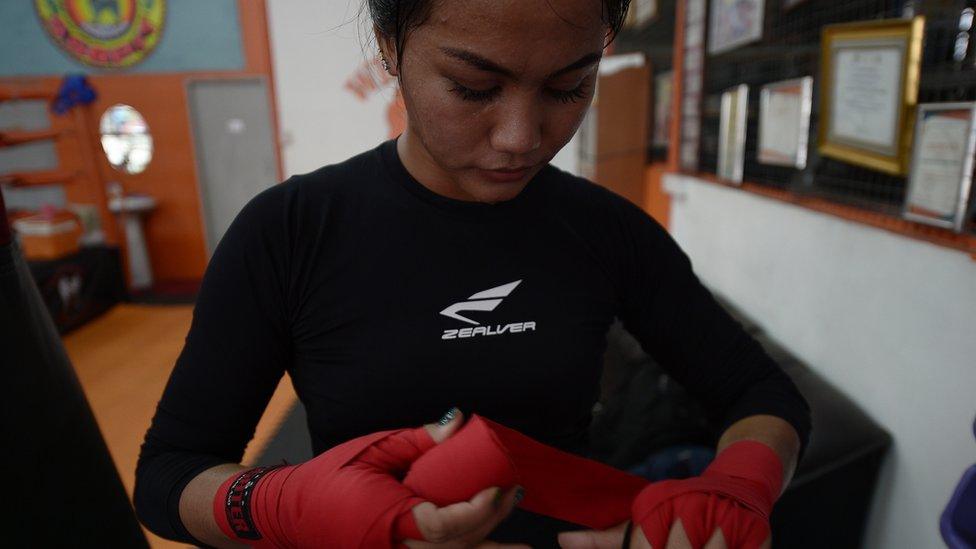
Despite facing these limitations, Pariyakorn believes the sport industry, both in Thailand and internationally, is accepting the increasing role of female Muay Thai boxers and martial arts fighters.
This year marked the first time a transgender fighter entered the ring to fight in Bangkok's Lumpinee Boxing Stadium.
Pariyakon's company continues to promote female Muay Thai boxing at national and international level, which in turn gives women the opportunity to create a boxing career and inspire the next generation.
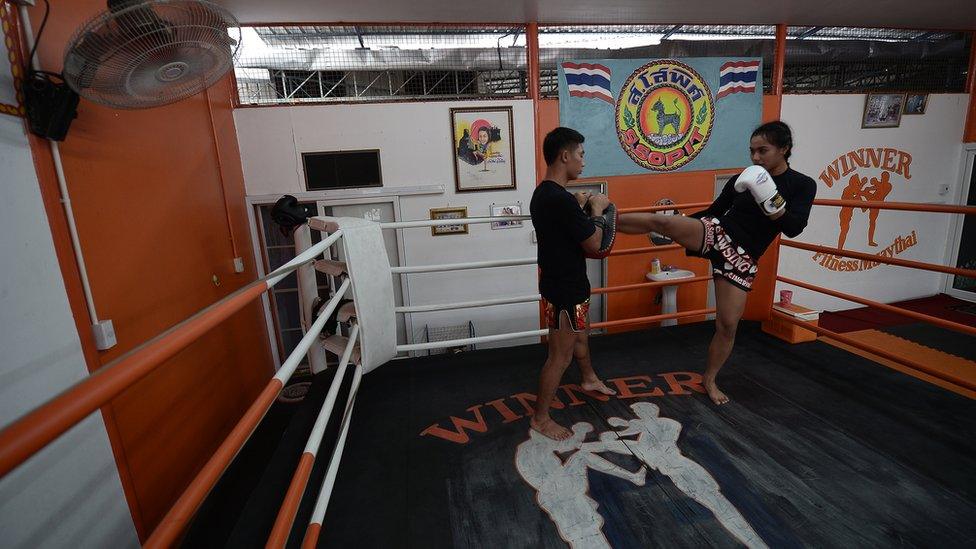
"The most important thing is changing the perception of sponsors towards female Muay Thai fighters," she says.
"In spite of dealing with the challenges in the industry, all female boxers should have the opportunity to become champions.
"They should keep training hard, working hard and reach their goals.
"Once they become heroes and role models, they will be in demand by sponsors or promoters. New opportunities will come."
Reporting by Lara Owen BBC Women's Affairs Journalist East Asia, Watchiranont Thongtep BBC Thai.
Photographs courtesy of Wasawat Lukharang, from BBC Thai. Video Journalist: Jiraporn Kuhakan from BBC Thai.


What is 100 Women?
BBC 100 Women names 100 influential and inspirational women around the world every year. In 2017, we're challenging them to tackle four of the biggest problems facing women today - the glass ceiling, female illiteracy, harassment in public spaces and sexism in sport.
With your help, they'll be coming up with real-life solutions and we want you to get involved with your ideas. Find us on Facebook, external, Instagram, external and Twitter, external and use #100Women

- Published7 August 2017
